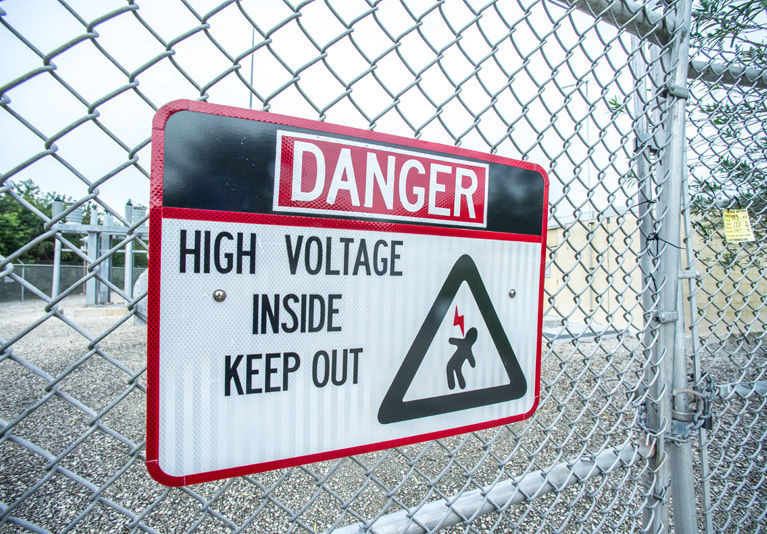
The Indian River Shores Town Council, which had planned to vote on the height and location for the proposed cell tower on Monday, instead delayed the vote and gave a consultant an extra few weeks to expand his radio frequency (RF) study to include a site at the end of Fred Tuerk Drive.
Rick Edwards, president of Boca Raton-based CityScape Consultants, presented his findings of a signal study at the Town Hall complex to a packed room with about 75 local residents. Edwards recommended the Town plan for a 115-foot tower north of the Town Hall parking lot in a wooded area, and said that tower would cover the Town and could support the four major cell service providers.
The crowd gathered was split between John’s Island and The Estuary residents and environmentalists who prefer the Town Hall location on the one hand, and Bermuda Bay residents who have mobilized and signed petitions opposing the Town Hall location.
“The search ring is devoid of politics,” Edwards said, noting that he studied the town based upon computer radio frequency models only. “This location gave the best penetration through all the obstacles.”
Town Manager Robbie Stabe said outside the meeting on a break that he stayed out of the study process as to not influence the result. CityScape had been hired at the urging of John’s Island and The Estuary residents who engaged beachside attorney Michael O’Haire to represent their interests. They felt the Town needed an independent, second opinion from the firm of Datapath Towers that the Town contracted with to permit and build the tower.
During the meeting, Penny King of the Bermuda Bay Property Owners Association objected to having a decision made at Monday’s meeting, without the promised post-study workshop. “Taking a vote without the step of having the workshop would be a terrible end to this process,” King said.
Vice Mayor Jerry Weick, a Bermuda Bay resident, said the Town Council has a responsibility to weigh how many residents would be impacted by the Town Hall location versus the Bee Gum Point location. “That location on Fred Tuerk Drive affects maybe 10, 15 houses, but this location (Town Hall) affects 100, maybe 150 houses,” Weick said. When it was revealed that Edwards did not perform a signal study on the Bee Gum Point location, progress toward a vote screeched to a halt.
John’s Island resident Sandy Kasten, a vocal opponent of the tower being placed anywhere near his waterfront property, urged the Council to go forward with the consultant’s recommendation. He said maybe something could be done to improve the aesthetics of the tower. But Councilman Tom Slater made a motion to direct the consultant to take a couple more weeks and study the Bee Gum Point location.
Mayor Brian Barefoot agreed, with the caveat that he was dead-set against anything that would shelve the project or push it down the road. “The bottom line here is that we’ve got to make a decision,” Barefoot said. “There’s a real life safety component.”
The treasurer of the Ocean Colony association reported not being able to call for fire and police services due to lack of cellular service. Others from Bermuda Bay complained that property values would go down, an average of 10 percent for homes in close proximity to the tower.
Bob Gibb, principal of John’s Island Real Estate, countered that the lack of adequate cell and data service is actually hurting property values, and that prospective homebuyers see the Town’s cellular dead zone as a missing amenity, or even a lifeline.
Edwards said he is out of town next week, but could complete the study by mid-April.



